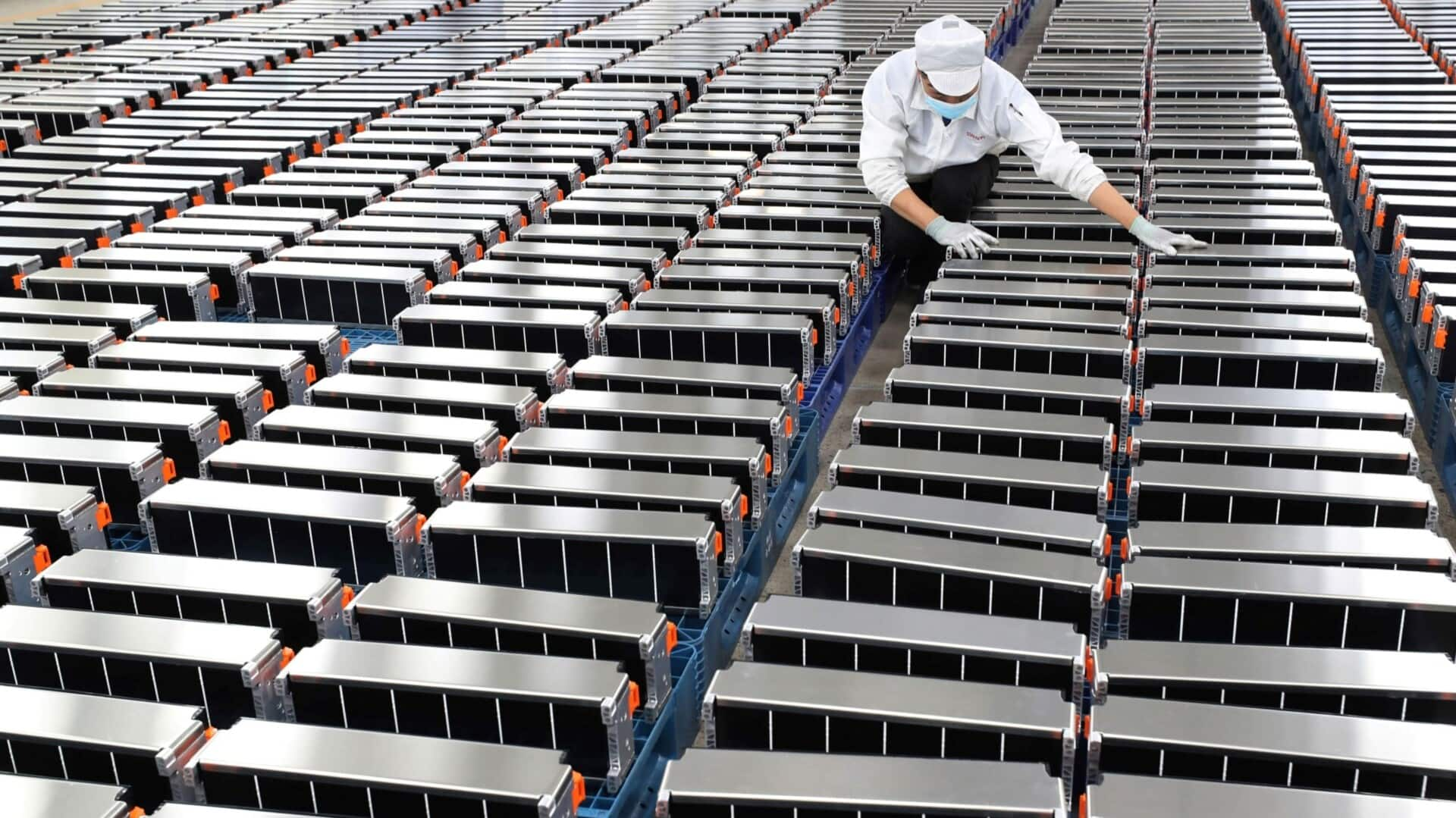
LG, JSW Energy planning $1.5B battery manufacturing venture in India
What's the story
South Korea's LG Energy Solution (LGES) is said to be in talks with India's JSW Energy to form a joint venture for battery manufacturing, as per Reuters.
The project, which would support electric vehicles (EVs) and renewable energy storage, is expected to cost over $1.5 billion.
The companies have signed an initial agreement for an equal partnership, where LGES will provide technology and equipment and JSW will invest money.
Plant details
Proposed battery plant to boost India's EV market
As part of the JV, the two companies plan to establish a battery manufacturing plant in India with a combined capacity of 10GWh.
JSW will likely use about 70% of this capacity for energy storage and EVs, while LGES will use the rest.
"LGES wanted a partner in India and JSW is interested because it is coming up with its own brand of EVs starting with buses and trucks, and later on cars," a source familiar with the discussions said.
Strategic move
JV to establish LGES's manufacturing presence in India
For LGES, a top battery supplier to automakers like Tesla, General Motors, and Hyundai, this JV would mark its entry into the Indian manufacturing landscape.
The company already leads as the top battery supplier to e-scooter makers like Ola Electric and TVS Motor in India.
The venture also gives LGES an opportunity to reduce risks of manufacturing in a nascent EV market.
Business opportunity
JSW Energy to secure local supplies, reduce EV costs
For JSW Energy, the JV would mean locking local supplies for its energy business and cutting down costs for its EVs.
The company had earlier entered a joint venture with China's SAIC Motor, picking up a 35% stake in MG Motor's India unit.
"JSW has proposed a 25-year agreement to LGES," said another source, adding that JSW continues discussions with other battery manufacturers.
Government support
JV aligns with India's clean car manufacturing incentives
The companies hope to have the plant up and running by the end of 2026, with final decisions anticipated in three to four months.
If successful, the venture would be in line with India's government incentives to promote local clean car manufacturing.
Tata Motors and MG Motor dominate India's electric car sales, while brands such as Ola Electric, TVS, and Bajaj Auto lead e-scooter sales.